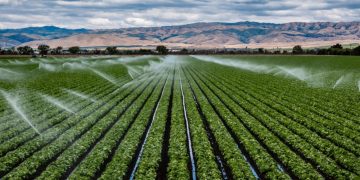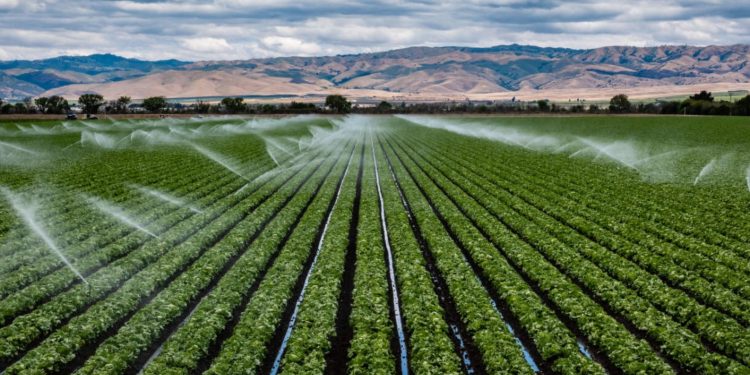#NorthKazakhstan #AgriculturalDevelopment #IrrigationProjects #WaterSavingTechnologies #SustainableAgriculture #CropProductivity #FoodSecurity #EconomicGrowth #TechnologyTransfer #EnvironmentalStewardship
In North Kazakhstan, five investment projects focusing on introducing irrigation to agricultural lands using water-saving technologies have been successfully implemented since the beginning of the year. The region has witnessed a remarkable expansion in the irrigated area, with a specific focus on drip and sprinkler irrigation methods. This article delves into the development and outcomes of these irrigation projects, showcasing their positive impact on crop cultivation and productivity in the region.
The Management of Agriculture and Land Relations in North Kazakhstan reports that a total of 4.7 thousand hectares have been brought under irrigation for agricultural crops. Among these, 0.5 thousand hectares utilize drip irrigation, while 4.2 thousand hectares are under sprinkler irrigation. Notably, the region boasts 73 modern sprinkler machines, with 20 of them acquired just this year. These machines are equipped with automatic sensors for movement and watering, enhancing efficiency and water conservation.
The primary cultivated crops benefiting from these irrigation projects are cereals (1 thousand hectares), potatoes (1.1 thousand hectares), vegetables (0.2 thousand hectares), and fodder crops (2.4 thousand hectares). The successful implementation of irrigation has significantly improved the yields of these essential crops, bolstering the agricultural sector in the region.
Recently, the head of the region, Akim Aidarbek Saparov, visited the Tayynshinsky district, where one of the agricultural formations actively utilizes drip irrigation for potato fields. This visit highlighted the on-ground impact of these modern irrigation methods on crop cultivation.
Earlier, in March, the head of the Management of Agriculture and Land Relations, Meiram Mendybayev, emphasized that irrigating fodder crops leads to high yields. Consequently, the irrigated area is set to double this year, reaching 5.1 thousand hectares. Additionally, six irrigation projects spanning a total area of 1,326 hectares are planned for implementation.
The expansion of irrigation to 5,100 hectares in North Kazakhstan marks a significant milestone in the region’s agricultural development. The successful completion of these investment projects has resulted in several positive consequences:
Enhanced Crop Productivity: The introduction of efficient irrigation methods, such as drip and sprinkler systems, has resulted in improved crop yields, contributing to food security and economic growth in the region.
Water Conservation: The adoption of water-saving technologies in irrigation has led to more responsible water usage. This approach ensures sustainable agriculture, mitigates water scarcity risks, and preserves this vital resource for future generations.
Agricultural Diversification: With a diverse range of crops being cultivated under the new irrigation schemes, the region is strengthening its agricultural portfolio. This diversification can reduce reliance on specific crops, thus promoting resilience in the face of market fluctuations.
Economic Growth and Employment: Successful agricultural projects stimulate economic growth and create employment opportunities. The expansion of irrigated lands necessitates a workforce, providing livelihoods and boosting the local economy.
Technology Transfer and Knowledge Sharing: The implementation of modern irrigation practices fosters technology transfer and knowledge sharing among farmers and agricultural stakeholders. This sharing of best practices can lead to further innovations in the sector.
The North Kazakhstan region’s accomplishment in implementing five investment projects for irrigation demonstrates its commitment to agricultural development and sustainable practices. By harnessing water-saving technologies and expanding irrigated areas, the region is fostering economic growth, food security, and environmental stewardship.































